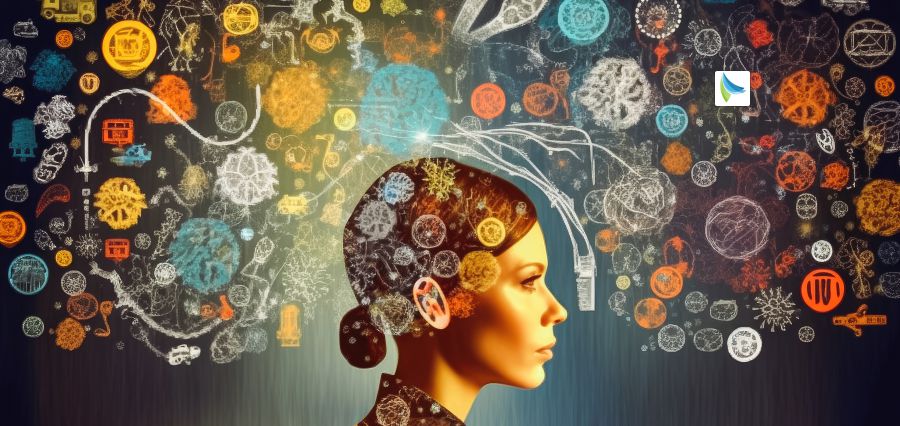Leading With Empathy
There are fundamental changes in leadership expectations. When hybrid teams, generational diversity, and the speed of social change are now the characteristics of our times, then being able to lead, guide, think, and act more with empathetic and emotional awareness is no longer a choice, but a necessity. The core of this transformation lies in Emotional Intelligence (EI), a set of skills which enable leaders to relate, to communicate, to inspire more enlightened. Women leaders are increasingly emerging as front-runners in this category due to their inherent ability in this field. Their empathy, teamwork, and personal insight are changing the paradigm of what robust, present-day leadership means.
Understanding Emotional Intelligence
Emotional Intelligence is a term introduced by psychologist Daniel Goleman and is made up of five fundamental aspects, which include self-awareness, self-regulation, motivation, empathy, and social skills. These skills affect the way leadership handles conduct, social dynamics, and personal choices that have constructive outcomes. In contrast to IQ, which is relatively unchangeable, emotional intelligence can be sharpened and enhanced with practice.
EI is not all about being a nice person or expressive. It is a tactical leadership capability that may affect communication, collaboration, conflict resolution, and team morale. High emotional intelligence helps leaders become more in touch with the emotional disposition of their groups, think critically in extreme situations, and build open and psychologically safe work cultures.
Why Women Leaders Excel in Emotional Intelligence
There are several reasons why women leaders often demonstrate high emotional intelligence:
- Relational Leadership Style: Females tend to embrace an inclusive approach to leadership. Their priorities often lie in the relationships and group dynamics, and they are closely related to the main points of emotional intelligence.
- Heightened Empathy: At work and even at home, women are often expected to carry out emotional work such as reading social cues, listening to others, and managing people. Such expectations can be demanding, but they also build emotional intelligence abilities.
- Experience With Bias and Barriers: Overcoming the institutional challenges and gender discrimination can create higher degrees of self-knowledge and power. Such experiences lead to heightened awareness of difficulties others encounter and can enhance compassionate leadership.
- Emphasis on Inclusion and Well-being: Women executives often initiate employee wellness and inclusion in the workplace. Among these priorities, there is a more social type of emotional intelligence where emotional well-being and psychological safety are key.
The Business Case for Emotional Intelligence
In addition to the personal experience narratives, emotional intelligence offers a decent business case. Harvard Business Review research found that emotionally intelligent leaders are more likely to create engagement, trust, creativity, and collaboration. Groups under these types of leaders are more effective, turnover is lower, and job satisfaction is higher.
The ability to lead empathetically, through the use of emotions, and the ability to build trust, give leaders an edge, especially in a multicultural workforce in a globalized environment.
Emotional Intelligence in Action Case Studies
Emotionally intelligent women leaders are increasingly making huge contributions in various industries.
The ex-Prime Minister of New Zealand, Jacinda Ardern, received global recognition due to her compassionate and emotionally intelligent approach to crises, such as the Christchurch Mosque shootings and the COVID-19 pandemic. Her interaction skills were observed to be very adept and minute, empathetic, and non-confrontational, and were widely accepted as a masterclass on emotional intelligence in leadership.
This instance highlights the practical advantages of emotional intelligence in leadership with empathy and sincerity.
Developing Emotional Intelligence in All Leaders
Although women have a stronger natural or social service in certain areas of EI, emotional intelligence does not belong to a particular gender. It is one of the sets of skills that may and must be developed by every leader. This can be achieved by organizations doing:
- Integrating leadership training with EI development
- Promoting mentoring and peer coaching
- Management of emotionally smart actions is achieved through the evaluation and recompense of emotion-smart actions.
- Developing empathy, listening, and psychological safety cultures
The push towards more emotionally intelligent leadership is not necessarily a gendered agenda, but there is value to paying attention to the strengths women must add to the table and learning to learn from them.
Conclusion
Emotional Intelligence is a superpower, which is a soft skill. Leaders who guide with empathy, emotional understanding, and connection are valuable now more than ever as organizations struggle to operate in a world of exponentially increased complexity and change. Female leaders have become attuned to these skills in major ways and have created a new norm of what effective leadership should be. With emotional intelligence, workplaces can establish stronger, more inclusive, high-performing leadership cultures that benefit all, not merely women.
Read Also: Skills Every Aspiring Woman Leader Needs













